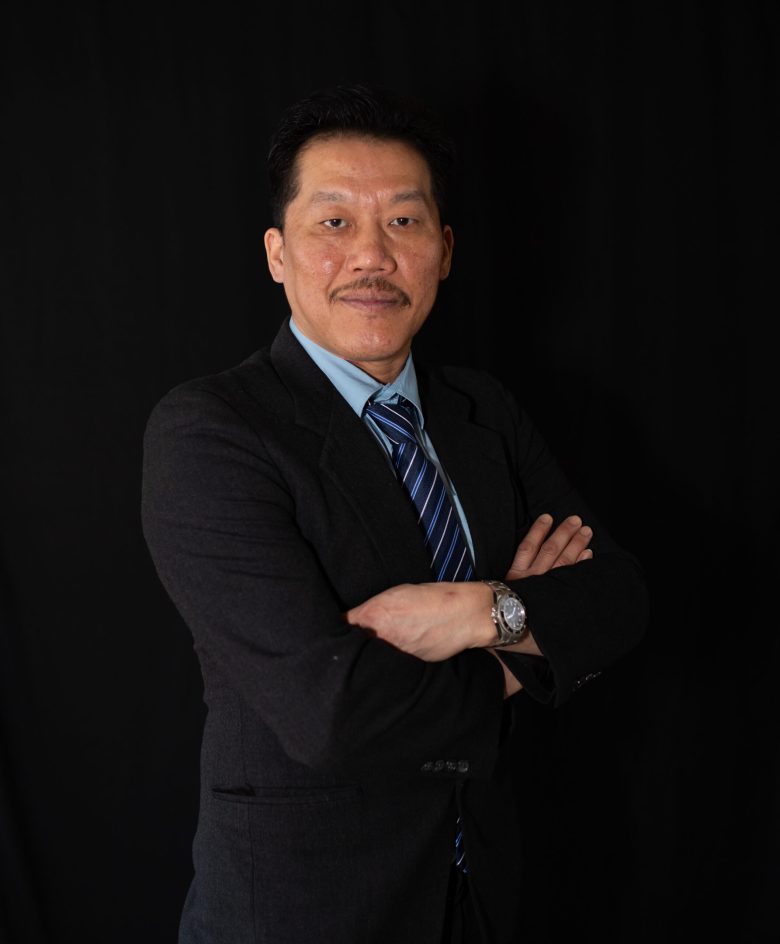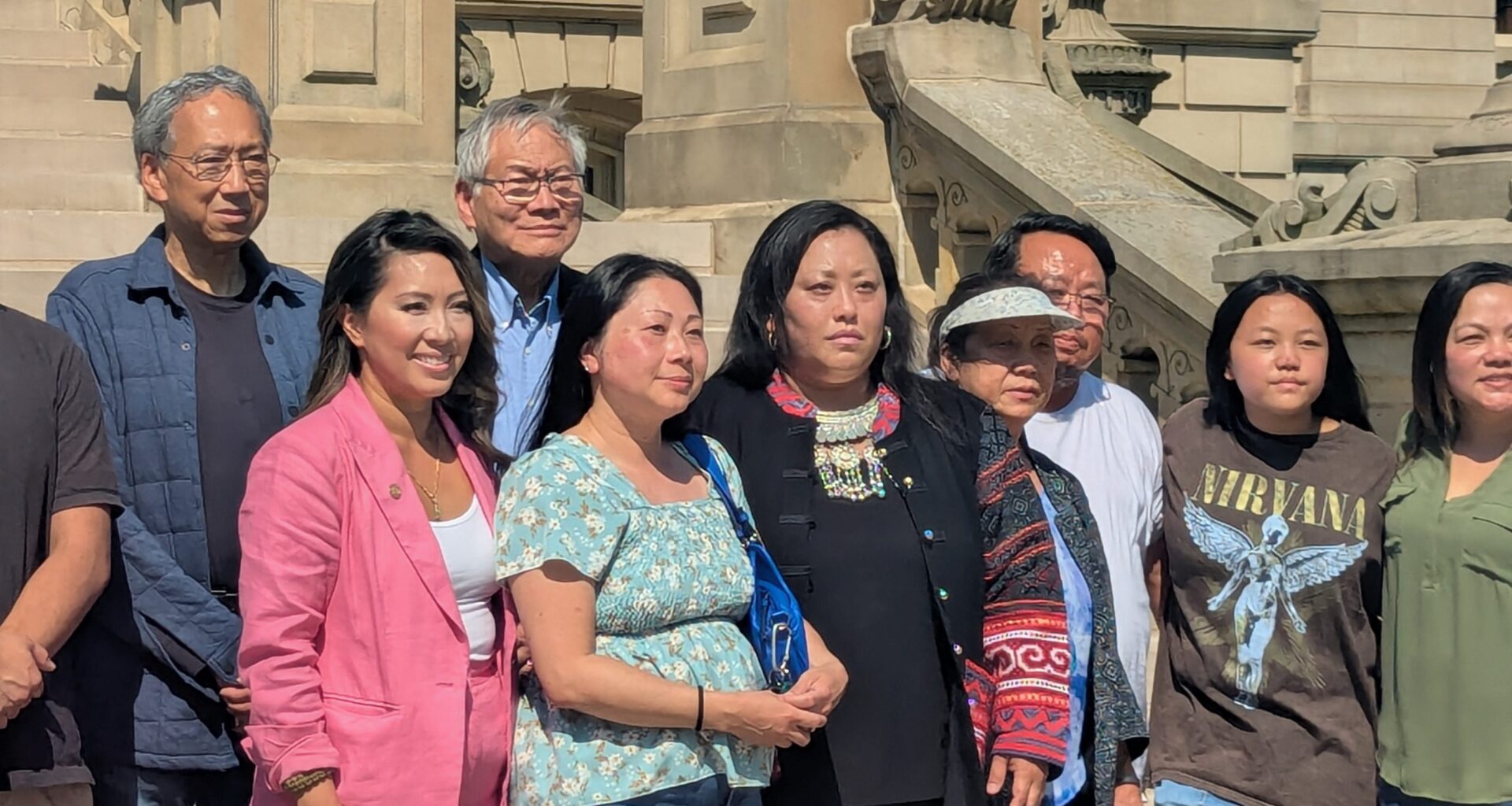St. Johns resident Lue Yang, a Hmong immigrant, and other Hmong and Laotian refugees were detained by immigration officials in July
Yang entered the country legally as an infant, but a home invasion conviction when he was a young adult complicated immigration status
Advocates say Yang and other refugees shouldn’t be deported to Laos, where they fear political repercussions
LANSING — Aside from the refugee camp in Thailand where he was born after the Vietnam War, Michigan is the only home St. Johns resident Lue Yang has ever known.
A decades-old criminal record already expunged by the state may now be the catalyst for his deportation to Southeast Asia, which his family and advocates say could result in his imprisonment or death because of his advocacy for Hmong veterans in the US.
 Lue Yang, an auto industry engineer and president of the Hmong Family Association of Lansing, is facing potential deportation and being detained at the North Lake Correctional Facility in Baldwin.(Courtesy of Hmong Family Association of Lansing)
Lue Yang, an auto industry engineer and president of the Hmong Family Association of Lansing, is facing potential deportation and being detained at the North Lake Correctional Facility in Baldwin.(Courtesy of Hmong Family Association of Lansing)
“Deporting him not only turns…a respected community leader into a political casualty, it would be a grave and irreversible injustice,” his wife, Ann Vue, said during a Thursday press conference at the state Capitol in Lansing.
“He has already served his time. He’s turned his life around, and he built a life in America rooted in purpose, love and service.”
Yang, who serves as president of the nonprofit Hmong Family Association of Lansing, is one of at least seven Hmong refugees who were detained in Michigan last month by US Immigration and Customs Enforcement (ICE), according to state Rep. Mai Xiong, a Macomb County Democrat who is also a Hmong refugee.
Eight Laotians have also been detained, according to the Michigan Immigrant Rights Center, which said many came to the country with federal assistance after the Vietnam War ended in 1975 because their families faced persecution for assisting the US.
ICE officials have not responded to a request for comment on the detentions.
Immigration enforcement has been a key tenet of President Donald Trump’s second term, with the administration ramping up ICE recruitment efforts to boost arrest and detention rates.
Through early June, ICE officials had made more than 100,000 arrests during Trump’s second term — nearly as many as the Biden administration made in all of fiscal year 2024. Michigan data is not yet available, but the chief agent for the Detroit Sector of US Border Patrol has announced dozens of arrests in Michigan.
Trump has called for expanding operations even further in some of the country’s largest, Democratic-majority cities like Los Angeles, Chicago and New York “to achieve the very important goal of delivering the single largest Mass Deportation Program in History,” he previously wrote on social media.
The administration has said its focus is to remove the “worst of the worst” such as people with criminal records.
Yang’s situation highlights a key limitation of Michigan’s “Clean Slate” laws, bipartisan policy measures designed to clear most nonviolent convictions from a person’s record if they haven’t committed crimes since.
His past conviction is no longer public record in Michigan. But state expungements generally aren’t recognized federally, meaning US immigration authorities can still reference those records when considering a person’s legal status.
The 47-year-old father of six came to the US legally as an infant with his family after escaping political persecution in Laos following the Vietnam War.
As a young adult in 1997, Yang was arrested on a home invasion charge, ultimately taking a plea deal and serving 10 months for the crime, Vue said.
The conviction has since complicated Yang’s immigration status. Vue, a US citizen, said past attempts to sponsor her husband for a green card were rejected, but she noted he’s never been considered a resident of Laos or Thailand, either.
Vue said she and her family fear the worst for Yang if he is deported to Laos due to his active involvement in Michigan’s Hmong community and his family’s past work with the US military.
“Both countries have rejected him over and over,” she said. “Lue is stateless…if forced to return, he will face danger.”
Yang, who is an auto industry engineer, was picked up by immigration officials at his workplace on July 15, according to advocates.
An ICE database shows he’s currently being detained at the North Lake Correctional Facility in Baldwin.
The 1,800-bed private facility opened in June under the direction of GEO Group and is considered the largest ICE detention center in the Midwest. If operated at full capacity, the facility is poised to generate $70 million a year in profits, according to company estimates.
Other Hmong and Laotian refugees arrested last month were reportedly detained after receiving a summons to an ICE field office and have since been transported to Alexandria, La., a facility that’s been used as a staging area for deportations.
Advocates are calling for greater transparency in immigration enforcement proceedings so it’s clear that due process rights of detainees are being followed. Xiong, the state lawmaker, noted that trying to track down the location of detainees “has been like trying to find missing people.”
Xiong is also hoping federal authorities consider the historical context and unique circumstances of Hmong and Laotian immigrants before deporting them to a country their families fled.
“Most of these individuals have never been to Laos or were not born there,” she said. “Refugees living in Michigan do not have a safe country to return to. Michigan is their home.”
Related
Republish This Story

